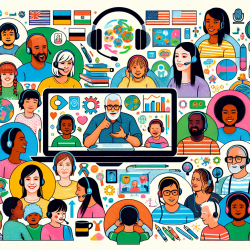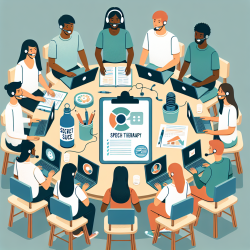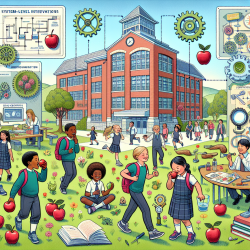Introduction
As practitioners dedicated to improving children's outcomes, understanding the factors influencing motor skills is crucial. A recent study titled Parental, Prenatal, and Neonatal Associations With Ball Skills at Age 8 Using an Exposome Approach provides groundbreaking insights into how various factors affect children's ball skills. This blog will explore the study's findings and discuss how practitioners can leverage this information to enhance children's motor abilities.
The Exposome Approach: A New Perspective
The exposome approach, used in the study, is a hypothesis-free method that examines a wide range of environmental factors to identify potential influences on children's motor skills. By analyzing data from the Avon Longitudinal Study of Parents and Children (ALSPAC), the researchers assessed numerous prenatal, parental, and neonatal factors that could impact a child's ability to throw a ball accurately at age 8.
Key Findings
- Maternal Childhood Happiness: The study found a robust association between a mother's happiness during her childhood and her child's ball skills. Mothers who reported a happy childhood had children with better ball skills.
- Parental Vision: Parents with poor eyesight were more likely to have children with poorer ball skills, suggesting that parental abilities and involvement play a significant role.
- Environmental Influences: Factors such as household pets and neighborhood conditions were also linked to children's motor skills. For instance, the presence of cats in the home was negatively associated with ball skills.
Implications for Practitioners
These findings highlight the importance of considering a broad range of factors when assessing and supporting children's motor development. Practitioners can use this information to tailor interventions and provide more comprehensive support to children and their families.
- Encourage Parental Involvement: Encourage parents to actively engage in play that enhances motor skills, such as ball games, to foster their child's development.
- Consider Family History: Take into account the parents' childhood experiences and current abilities, as these may indirectly affect the child's motor skills.
- Environmental Assessments: Evaluate the child's home and neighborhood environment to identify potential barriers or supports for motor skill development.
Future Research Directions
The study opens new avenues for research into the environmental and familial factors influencing motor skills. Further research could explore the biological mechanisms underlying these associations and how they might be addressed in interventions.
Conclusion
Understanding the diverse factors influencing children's motor skills is essential for practitioners aiming to improve developmental outcomes. By considering the insights from this study, practitioners can enhance their approach to supporting children's motor development.
To read the original research paper, please follow this link: Parental, Prenatal, and Neonatal Associations With Ball Skills at Age 8 Using an Exposome Approach.










